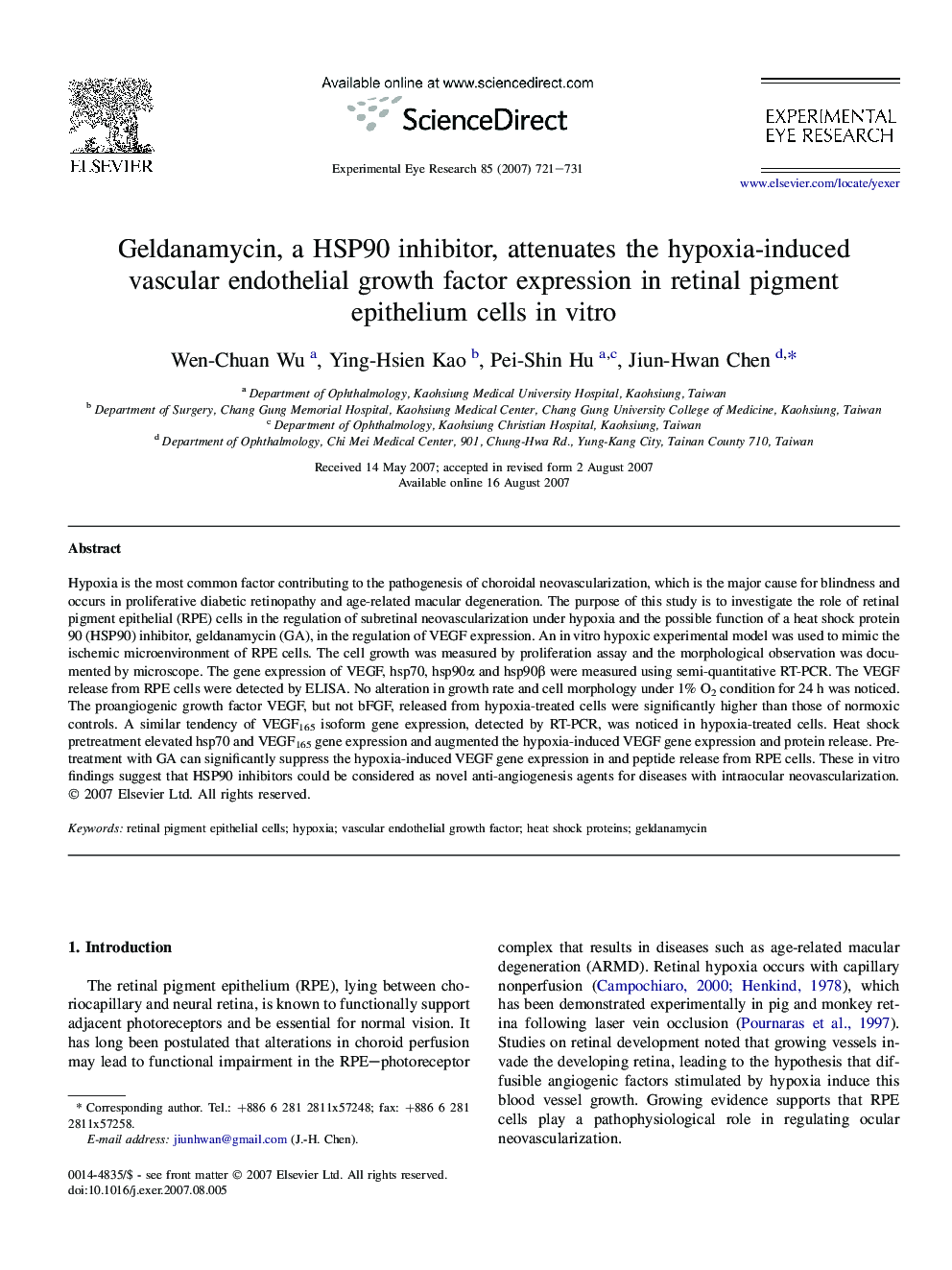| کد مقاله | کد نشریه | سال انتشار | مقاله انگلیسی | نسخه تمام متن |
|---|---|---|---|---|
| 4012556 | 1261199 | 2007 | 11 صفحه PDF | دانلود رایگان |

Hypoxia is the most common factor contributing to the pathogenesis of choroidal neovascularization, which is the major cause for blindness and occurs in proliferative diabetic retinopathy and age-related macular degeneration. The purpose of this study is to investigate the role of retinal pigment epithelial (RPE) cells in the regulation of subretinal neovascularization under hypoxia and the possible function of a heat shock protein 90 (HSP90) inhibitor, geldanamycin (GA), in the regulation of VEGF expression. An in vitro hypoxic experimental model was used to mimic the ischemic microenvironment of RPE cells. The cell growth was measured by proliferation assay and the morphological observation was documented by microscope. The gene expression of VEGF, hsp70, hsp90α and hsp90β were measured using semi-quantitative RT-PCR. The VEGF release from RPE cells were detected by ELISA. No alteration in growth rate and cell morphology under 1% O2 condition for 24 h was noticed. The proangiogenic growth factor VEGF, but not bFGF, released from hypoxia-treated cells were significantly higher than those of normoxic controls. A similar tendency of VEGF165 isoform gene expression, detected by RT-PCR, was noticed in hypoxia-treated cells. Heat shock pretreatment elevated hsp70 and VEGF165 gene expression and augmented the hypoxia-induced VEGF gene expression and protein release. Pretreatment with GA can significantly suppress the hypoxia-induced VEGF gene expression in and peptide release from RPE cells. These in vitro findings suggest that HSP90 inhibitors could be considered as novel anti-angiogenesis agents for diseases with intraocular neovascularization.
Journal: Experimental Eye Research - Volume 85, Issue 5, November 2007, Pages 721–731